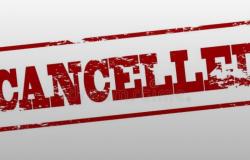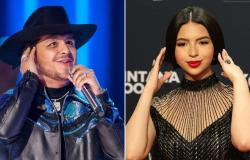
At 9 a.m. in Rome, Pope Francis received – and met – the governor of the province of Buenos Aires, Axel Kicillof, who arrived at the Vatican to hold an audience with the Argentine and leader of the Catholic Church worldwide. It was the first time they saw each other. Kicillof does not profess the Catholic faith, but shares some precepts and conceptions that Francisco usually develops. The meeting, according to the governor, was warm.
Kicillof arrived in Rome this Wednesday while the Base Law was being discussed in Buenos Aires. In full session in the Senate, he once again ratified his rejection of the initiative that ended up being generally approved late last night. After the meeting, the governor would say that it was just a coincidence in the calendar that the meeting took place at the same time as the Bases Law “which was not premeditated,” but that They did talk about the impact of the economic policy carried out by the national government and that “in some way we talked about the consequences of this Bases law.”
He arrived in Italy with a small delegation: he was accompanied by the Minister of Government, Carlos Bianco; the government minister Cristina Álvarez Rodríguez and the head of the Governor Unit, Nicolas Beltran -who is his private secretary-.
In one of the photos released by the government, Francisco is seen with Kicillof, Bianco and Álvarez Rodríguez, but the hearing – which lasted around 40 minutes – was only with the Buenos Aires president. Bianco and Álvarez Rodríguez were waiting in an adjoining room.
Just like he had done with the president Javier Milei, Francis presented the governor with a copy of his encyclicals Laudato Sí’ and Fratelli Tutti. In the first, published in 2015, Francis emphasizes the care of the common home. While Fratelli Tutti, from October 2020 in the middle of the pandemic, talks about fraternity and outlines a scenario about liberal and populist regimes.
For its part, Kicillof gave him two of his books: Foundations of the General Theory, the technical consequences of Lord Keynes and Seven lessons from the history of economic thought. Also he gave him a mate with wooden packaging with the logo of the province of Buenos Aires.
But he also brought some gifts. One of them was a portrait with the image of the San Lorenzo de Almagro players, Armando Farro, Rene Pontoni and Rinaldo Fioramonte Martino, remembered as the best forward that the Boedo club had in its history and who knew how to shine in the mid-40s. The person responsible for the gift was the Minister of Community Development, Andrés “Cuervo” Larroque; renowned fan of San Lorenzo.
After the meeting, the Buenos Aires delegation met with the prefect of the Dicastery for the Doctrine of the Faith, Víctor Manuel “Tucho” Fernández. He is a key ecclesiastical official in Francisco’s environment and who until September of last year was the archbishop of the city of La Plata. That meeting with the prefect of the Dicastery lasted almost two hours.
During his time in the curia of the Buenos Aires capital, Fernández maintained a fluid relationship with the Buenos Aires executive, both with Kicillof and some of his ministers such as Larroque or Álvarez Rodríguez. In fact, a few days ago both ministers participated in a tribute to the founder of the Movement of Priests for the Third World, Father Carlos Mugica, on the 50th anniversary of his assassination. The connection is also political with Francisco. It was Jorge Bergoglio, before becoming Pope, who had led the ceremony of what was the transfer of Mugica’s remains to the Cristo Obrero parish in Villa 31 in 1999.
Despite not accompanying Kicillof to Rome, Larroque was one of the intermediaries for the hearing to take place. The Executive had requested the meeting a long time ago and only last week did the Vatican confirm the meeting.
“I saw him attentive, informed. He was very warm, very affectionate and very precise with the definitions of a State and a policy of reaching out to those who need it most. “He insisted a lot on that,” Kicillof said in statements to C5N from Rome.
In addition to his books on economics, Kicillof also brought him some reports on the indices of the economic recession and the second edition of the book “Saved by Francisco”, research by the writer. Aldo Dusdevichwhich recounts the actions of the then Jesuit Jorge Bergoglio in the ’70s carrying out actions to save militants persecuted by the military dictatorship.
After the summit with Francisco, Kicillof gave some interviews and together with the delegation he will return to Buenos Aires where he will arrive this Friday morning. During these days, the provisions of the Buenos Aires Executive were in charge of the vice governor, Veronica Magario.





